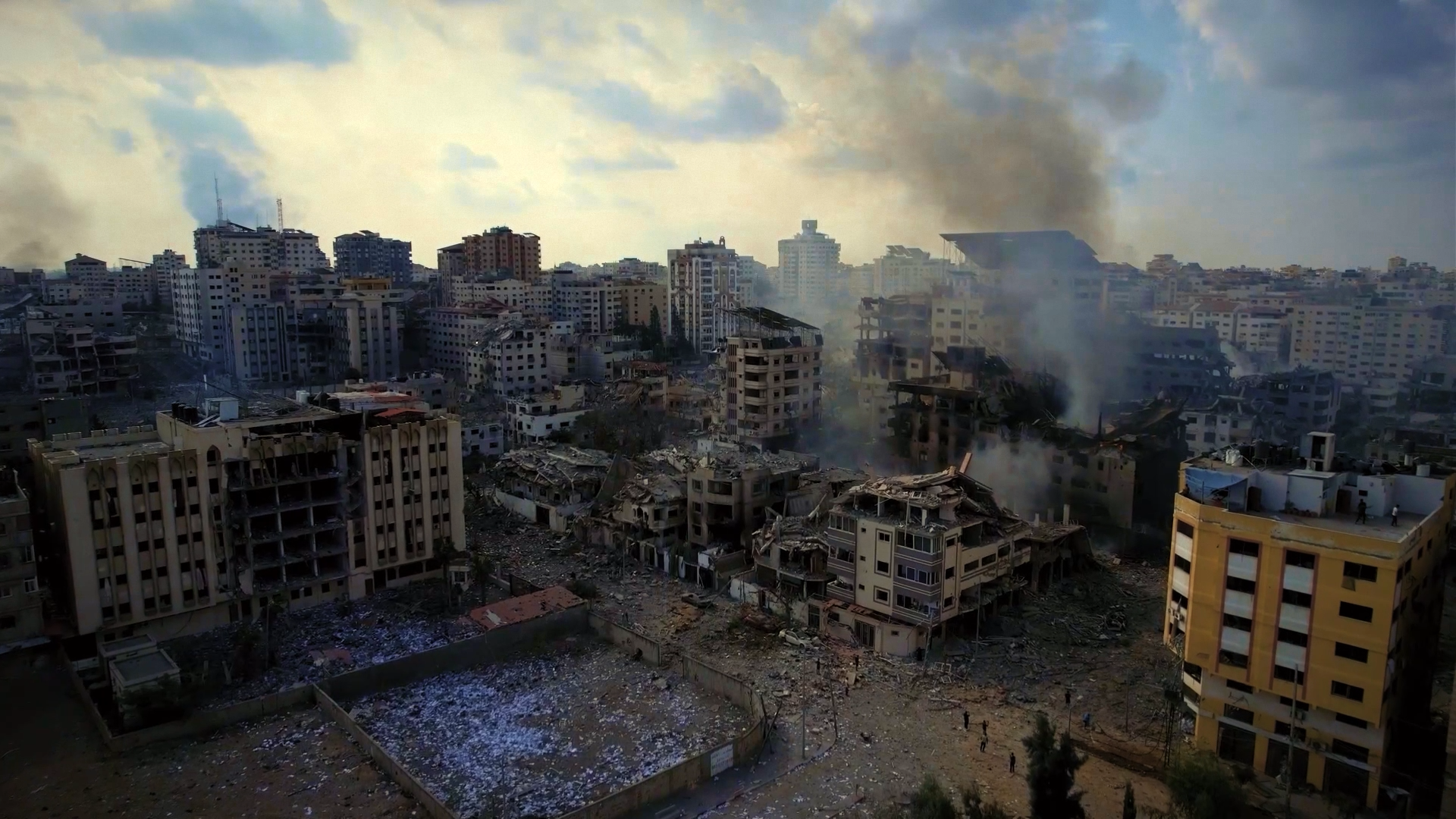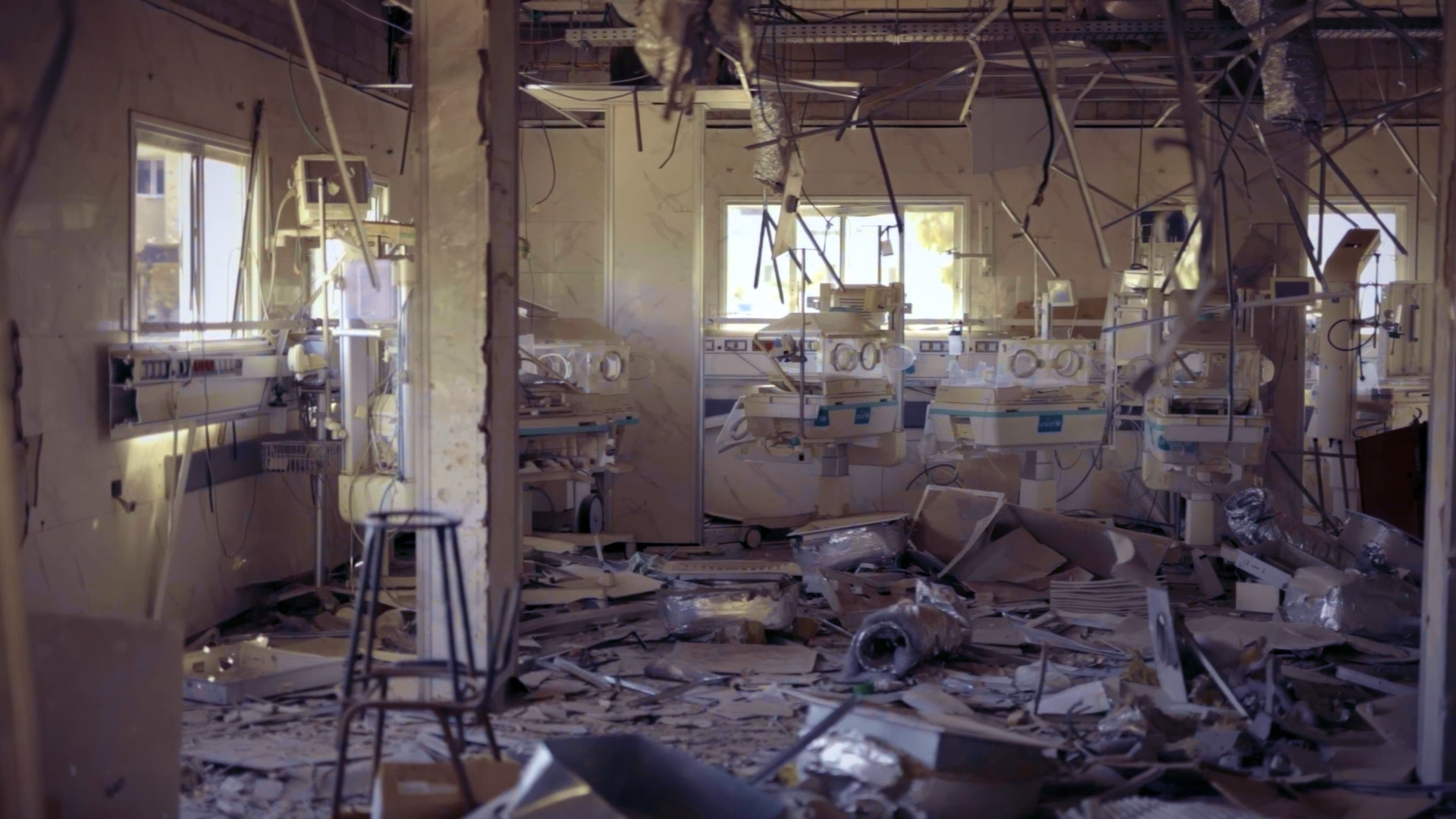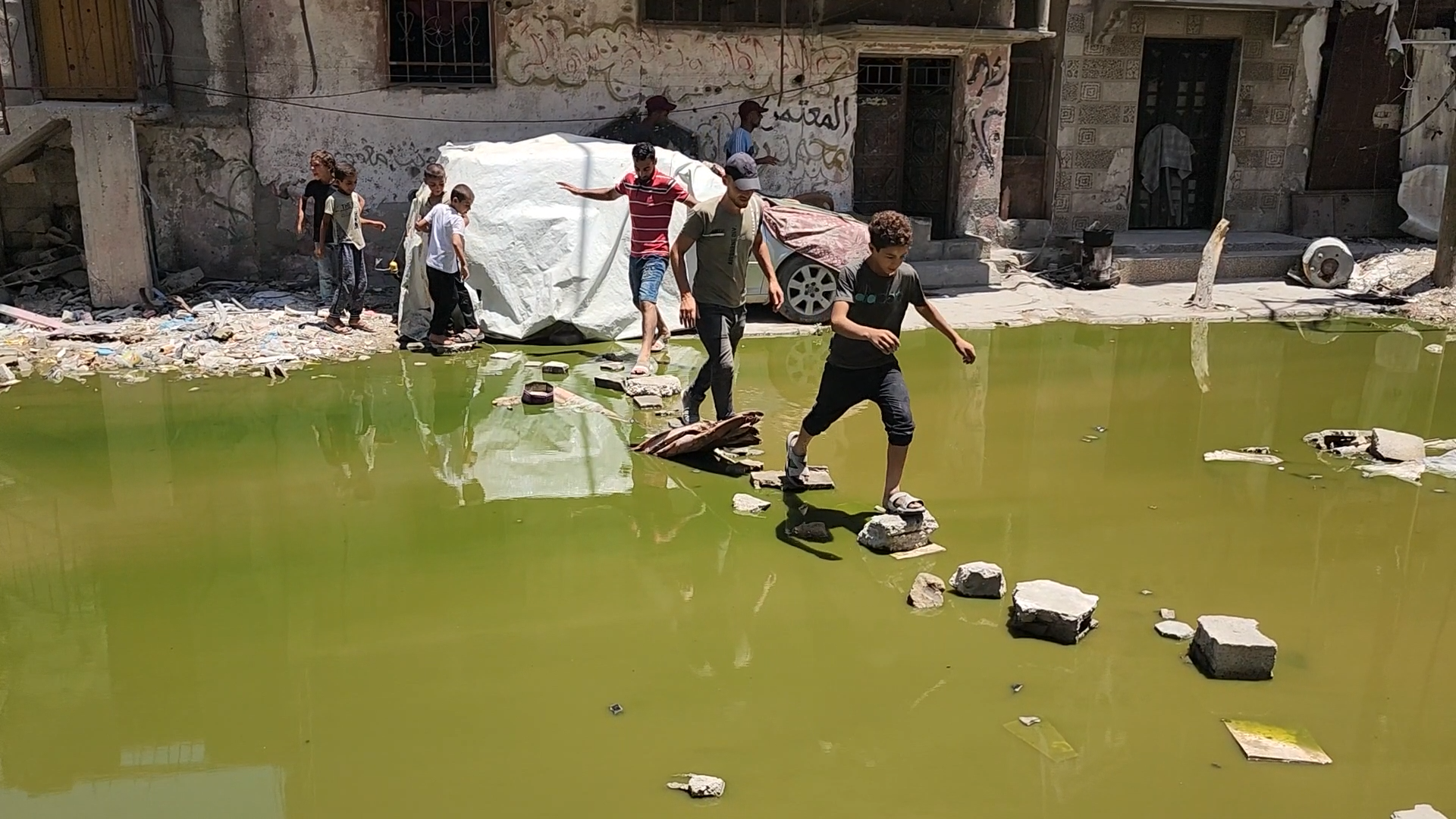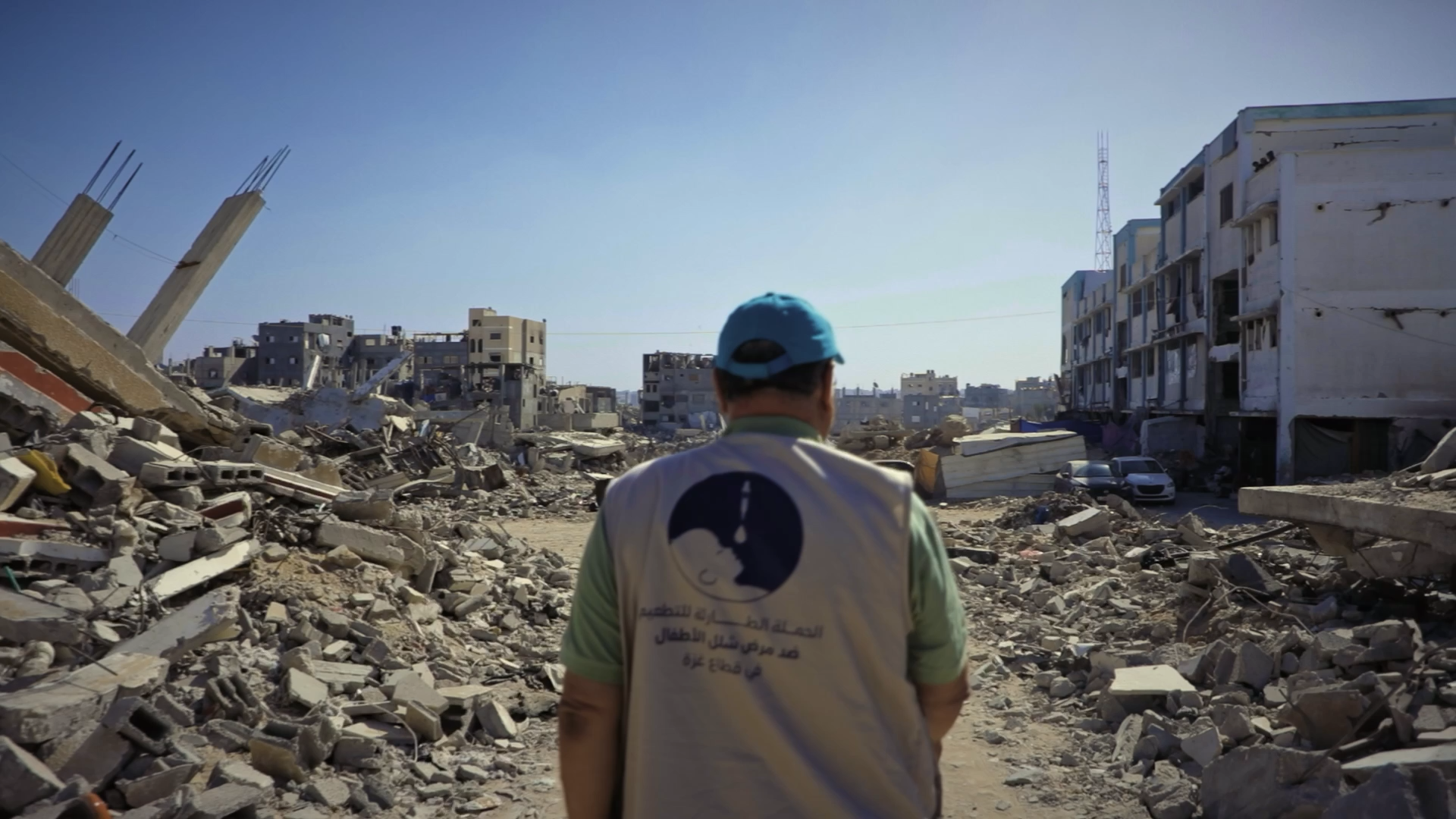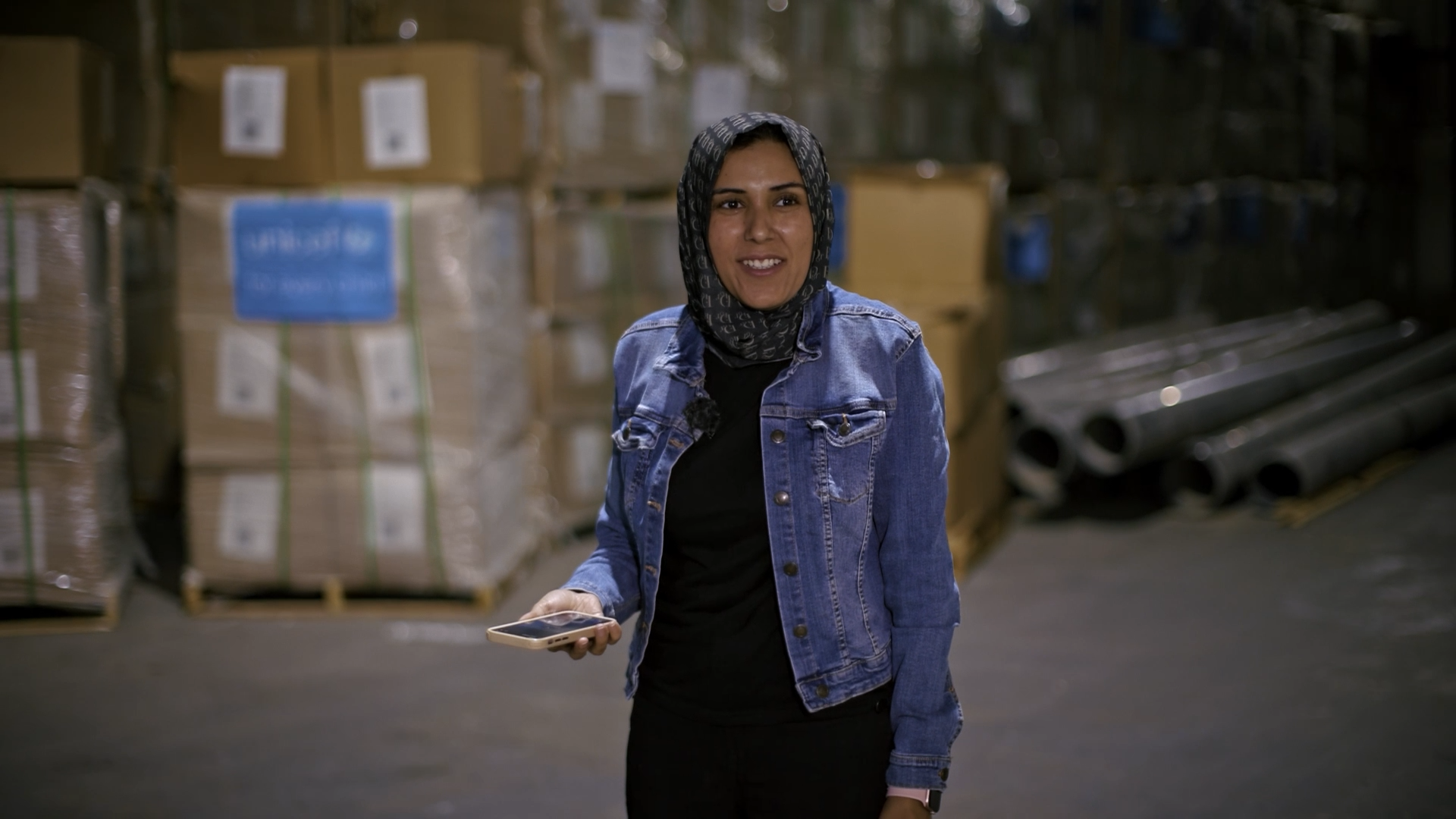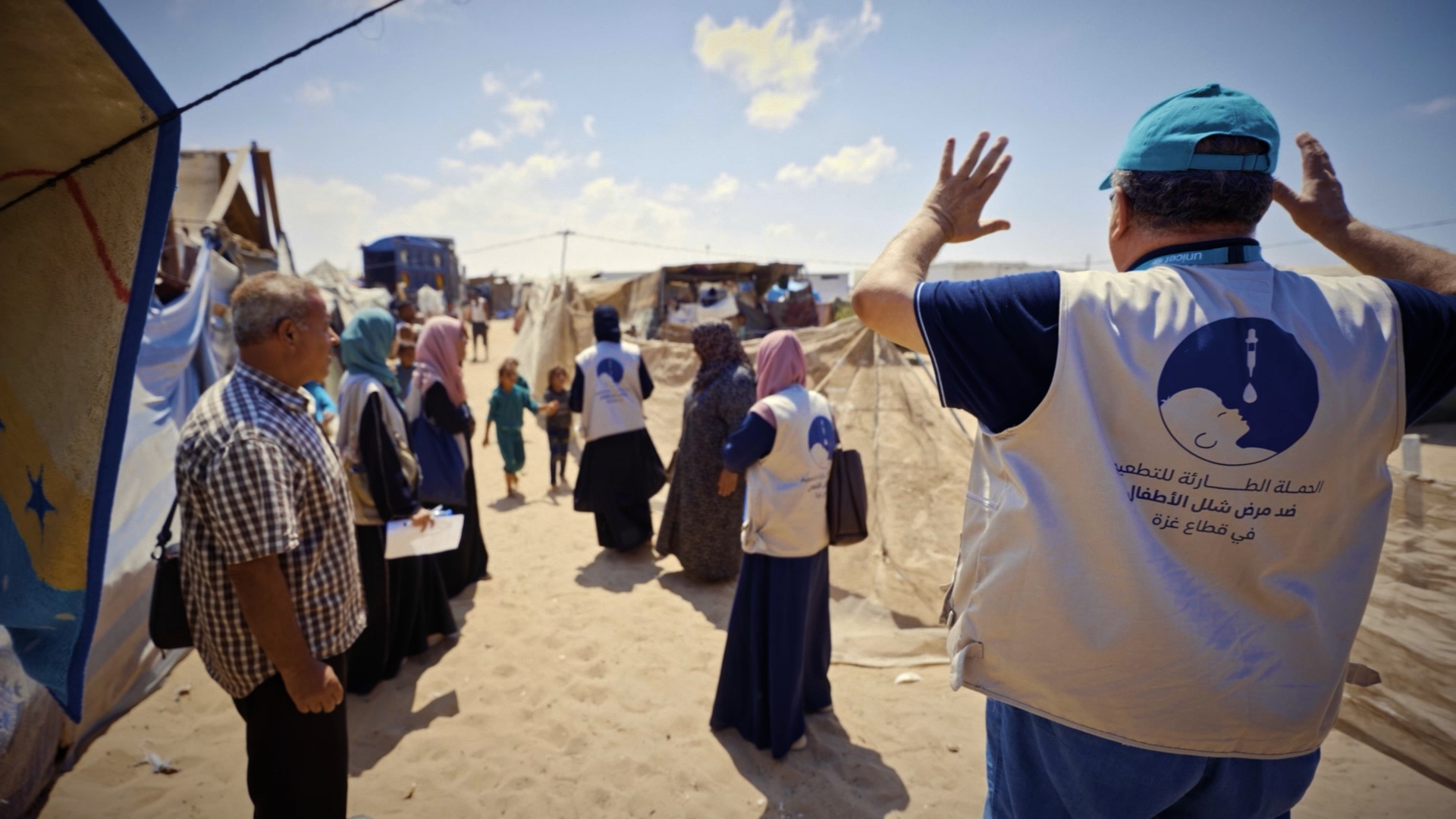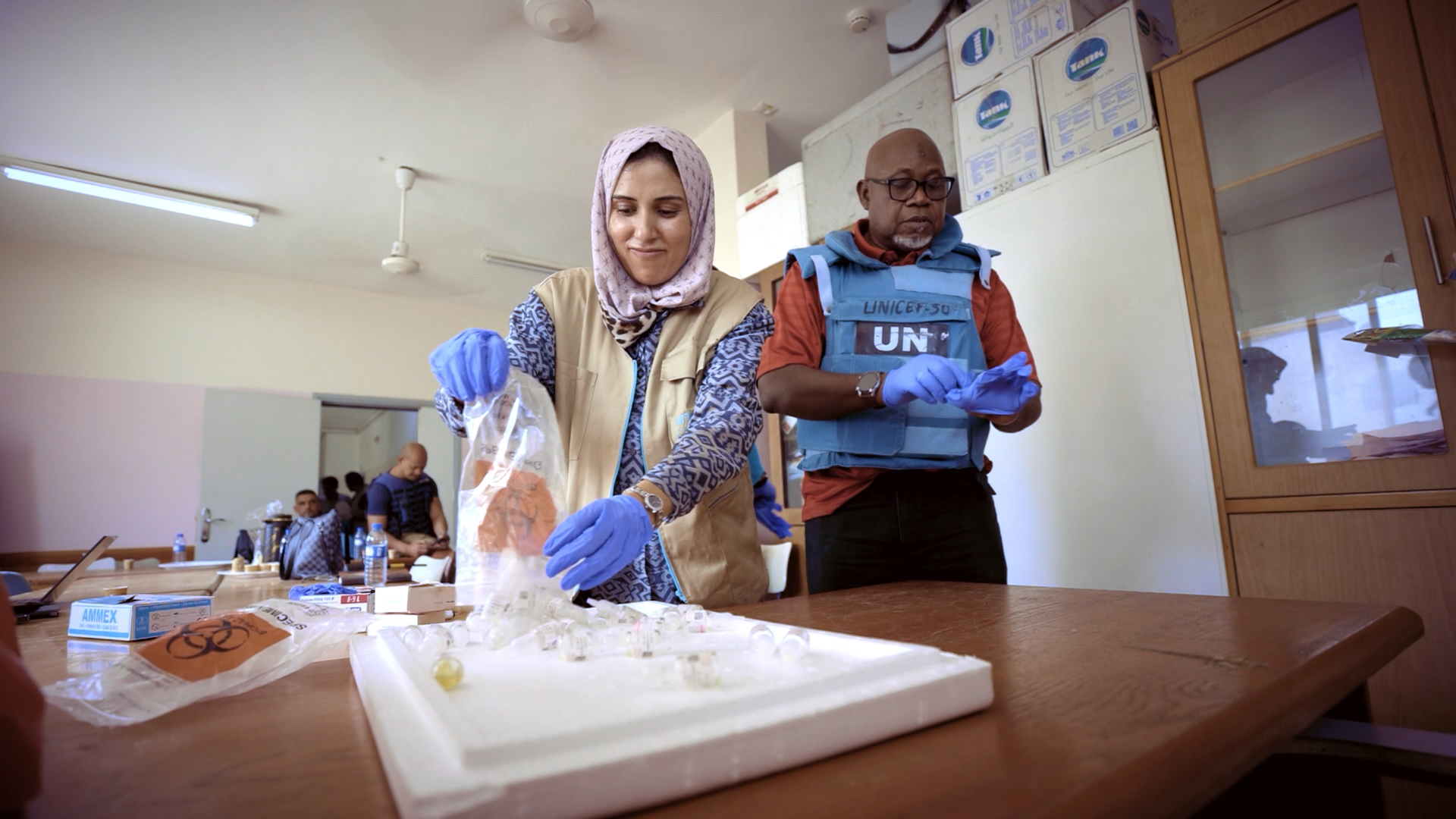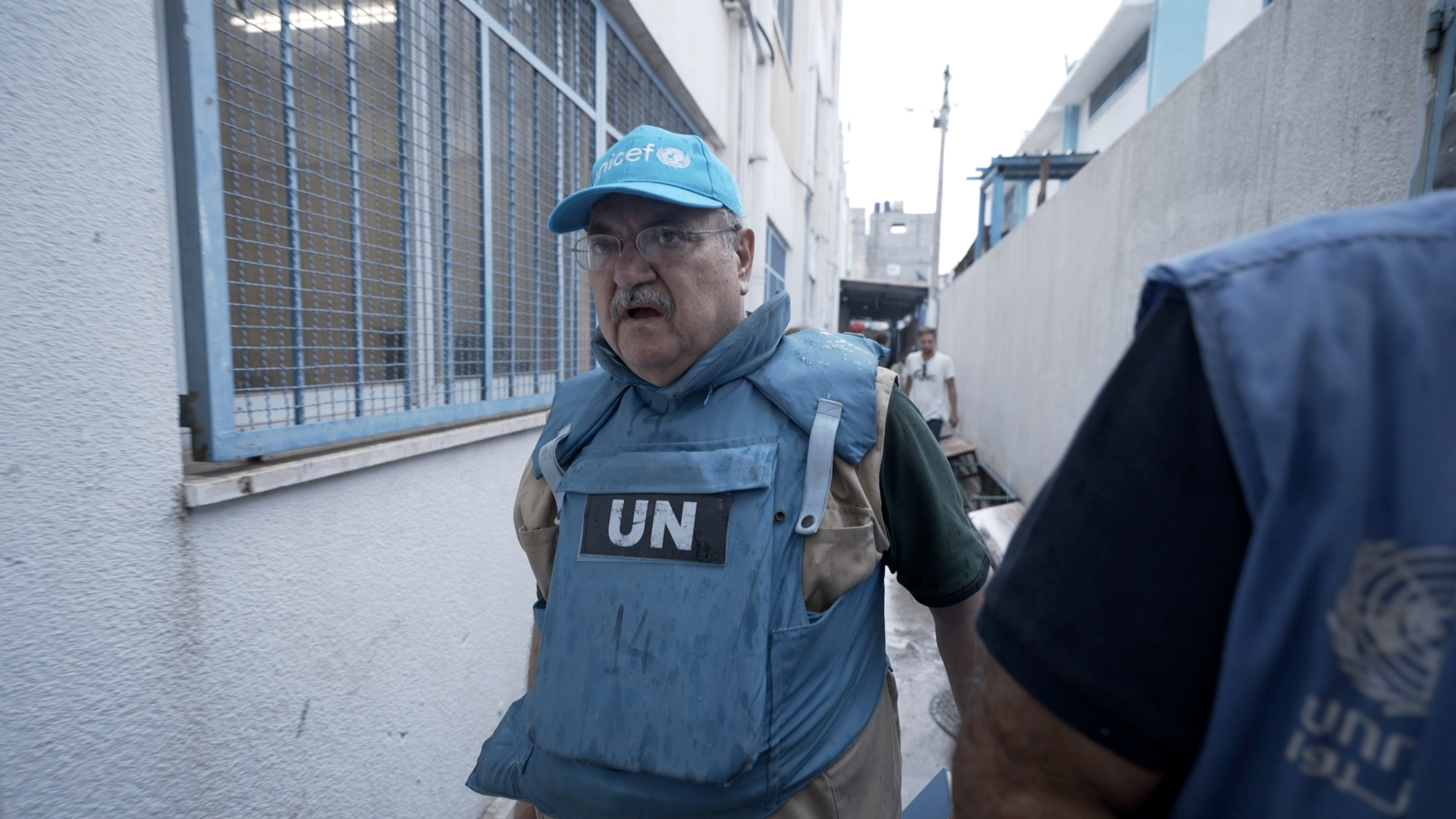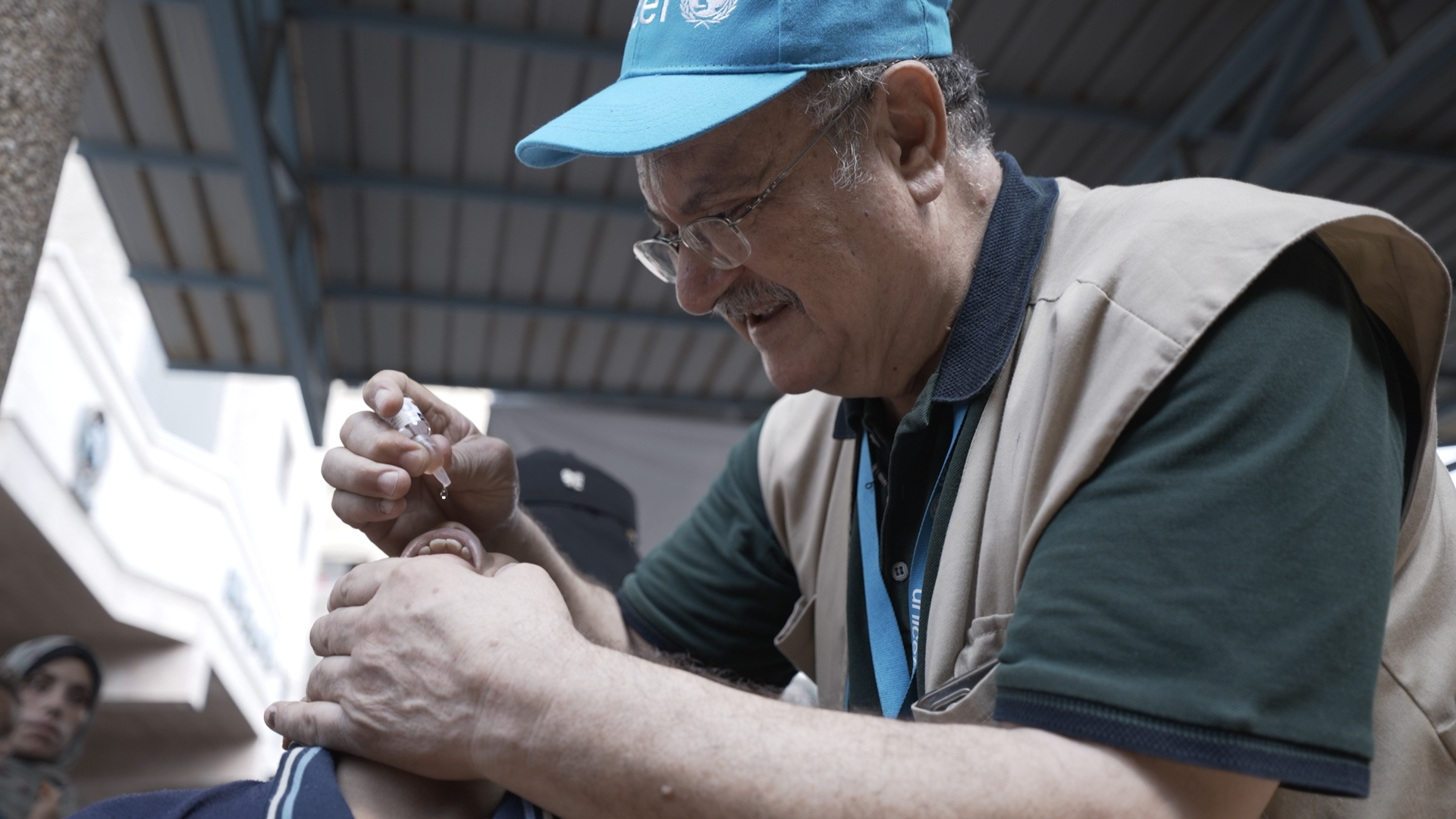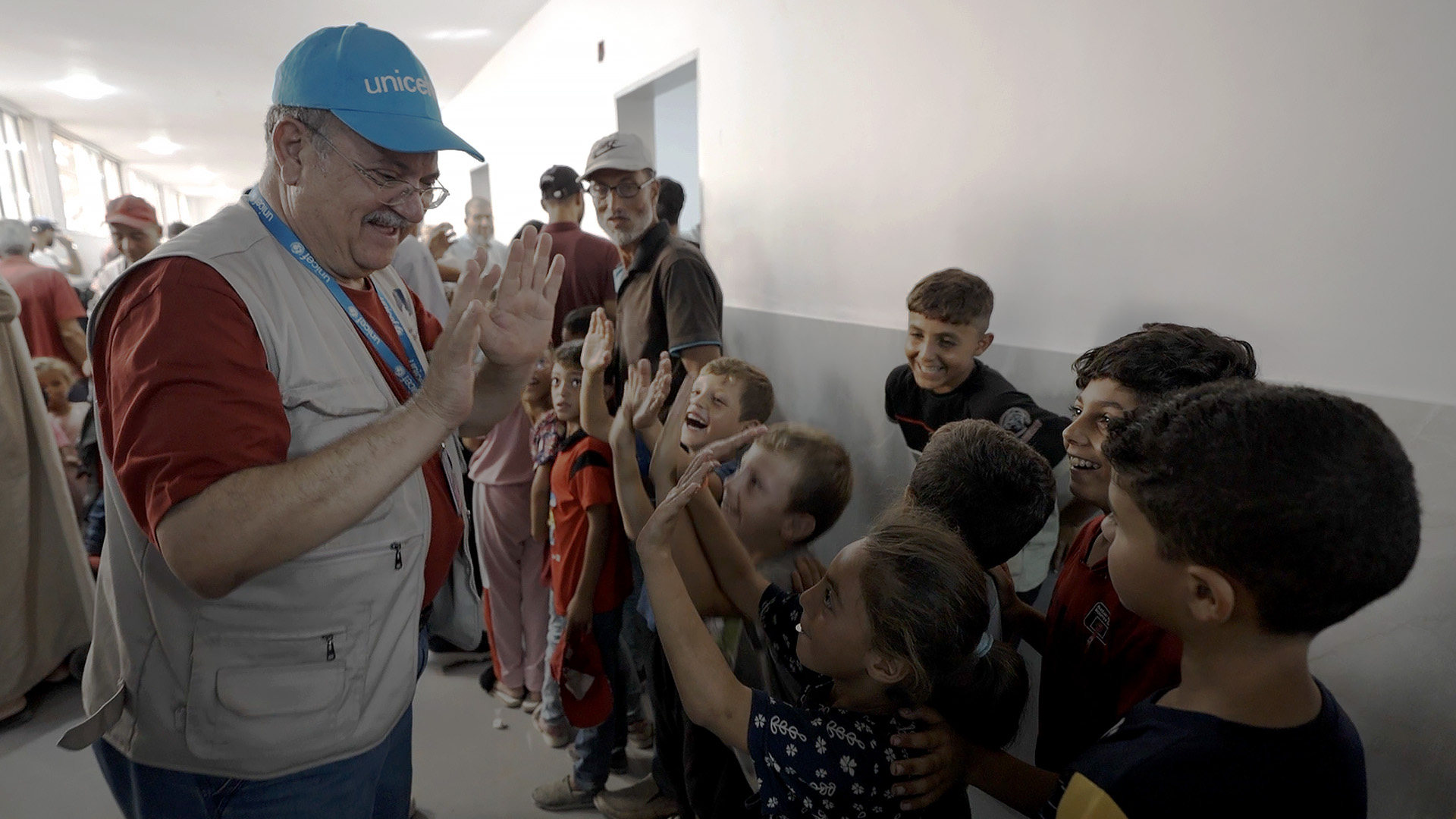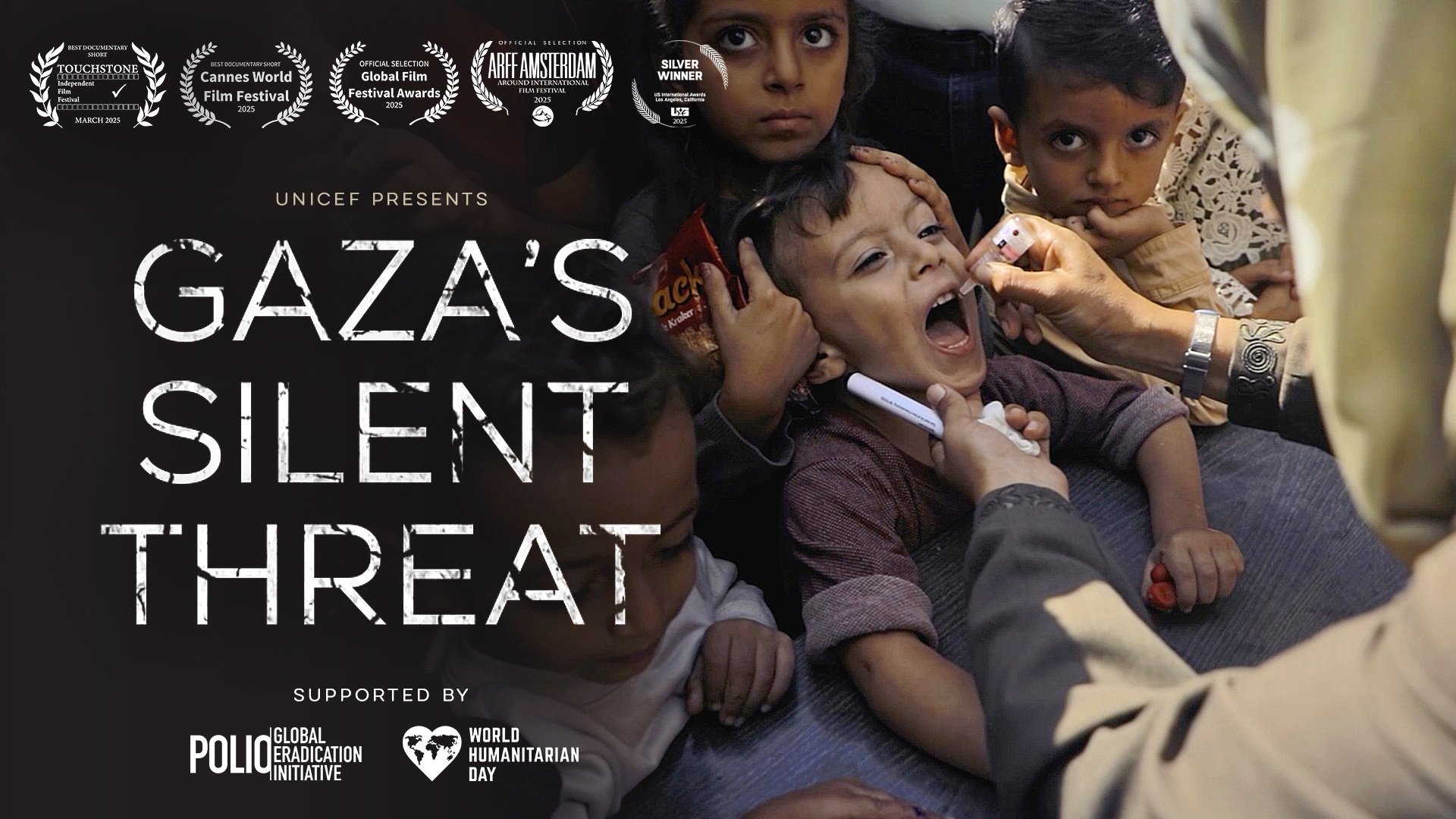
Gaza’s Silent Threat was created to spotlight the urgent reemergence of polio in Gaza after 25 years and to honor the extraordinary resilience of humanitarian workers leading the emergency vaccination campaign in one of the world’s most sensitive and difficult humanitarian settings. The film highlights the profound direct and indirect impacts of war on children’s health and underscores the critical importance of a well-coordinated emergency response, told through the powerful personal accounts of 2025 TIME100 Health Honoree Dr. Younis Awadallah and Fairuz Abuwarda, who risk their lives during brief ceasefires to vaccinate 600,000 children across the Gaza Strip.
The film’s objectives were threefold:
Build and sustain political and public support to end polio outbreaks and strengthen immunization systems globally.
Advocate for the protection of humanitarian and medical personnel, demanding safe, unimpeded access for life-saving services.
Reaffirm every child’s right to health, even in conflict zones, and mobilize donors, governments, and the public to take action.
Ultimately, the film was designed as a tool for communications, advocacy, and fundraising to protect children’s health and rights in fragile contexts.
When the 2024 polio outbreak was announced and preparations for the emergency vaccination campaign began, we searched for content that captured the challenges and lives of those managing such critical yet complex operations. We found no compelling long-form feature filmed in the midst of war. In this context, and through the profiles of Dr. Younis and Fairuz, we recognized an opportunity to reveal the behind-the-scenes of this extraordinary effort while bearing witness to the toll on those on the frontlines serving children in the most dire circumstances.
We crafted the documentary as both an intimate story and a global advocacy tool. By centering on two humanitarian aid workers from Gaza, the film humanizes abstract issues of child health and humanitarian emergencies. Producing it required overcoming severe logistical and operational hurdles on the ground. Limited transportation options and fuel shortages made even basic mobility difficult, while local teams worked under constant insecurity with very few resources. Damaged infrastructure further hampered communication, making coordination nearly impossible. Added to this was the intense time pressure of covering multiple locations during the limited hours of the vaccination campaign, leaving little opportunity to address technical challenges.
The strategy for release was carefully timed around global advocacy moments. The film premiered on UNICEF’s global YouTube channels in multiple languages to ensure wide accessibility. It was also produced with closed captions and audio description for inclusivity.
Strategic release windows aligned with major international campaigns:
World Humanitarian Day 2025: Amplified in partnership with OCHA and UN partners, spotlighting the vital protection of humanitarian workers' lives.
World Polio Day 2025: Leveraged to build political will and public support for immunization, paired with targeted screenings for policymakers, donors, and health leaders.
UNICEF country offices and National Committees, partners, NGOs, and advocacy networks were encouraged to host screenings with facilitated discussions. A distribution toolkit including useful assets (trailers, stills, posters, media packs) was distributed globally to ensure consistent messaging, while UNICEF and partners used the film to anchor media outreach.
Despite numerous challenges, the team succeeded in creating a documentary that balanced urgency with dignity, telling a deeply human story that could resonate across cultures and audiences.
The film has been successfully meeting its objectives as a communications and advocacy tool. Released globally across UNICEF platforms, it is available in multiple languages (English, Arabic, Spanish, French, Italian, Portuguese, German, Polish, and Chinese), ensuring reach across regions. It became a centerpiece of UNICEF’s campaigns for World Humanitarian Day and soon World Polio Day, amplified by OCHA, the UN, Global Polio Eradication Initiative partners, and global media.
Results include:
Widespread media coverage and social amplification, spotlighting the protection of humanitarians and children’s right to vaccines.
Adoption of the film in advocacy events, including screenings for donors and global health leaders.
Engagement of grassroots organizations and local partners, who used the film to drive discussions on humanitarian access and vaccine equity.
Direct fundraising opportunities tied to the film’s calls to action, mobilizing support for UNICEF’s emergency response in Gaza and other countries facing humanitarian crises.
The documentary has earned international acclaim, winning top awards at the Touchstone Independent Film Festival, the Cannes World Film Festival, the Global Film Festival Awards in Los Angeles, and in four categories at the US International Awards in Vienna. It was also selected by ARFF Amsterdam.
Dr. Younis Awadallah, featured in the film, was honored by TIME100 Health 2025 as one of the most influential people in global health for his role in Gaza’s emergency vaccination campaign, as depicted in the documentary.
Most importantly, the documentary transformed complex humanitarian challenges into a relatable, deeply moving story. By honoring Dr. Younis and Fairuz, it not only elevated Gaza’s crisis but also positioned the polio program as a model for broader global health impact.
